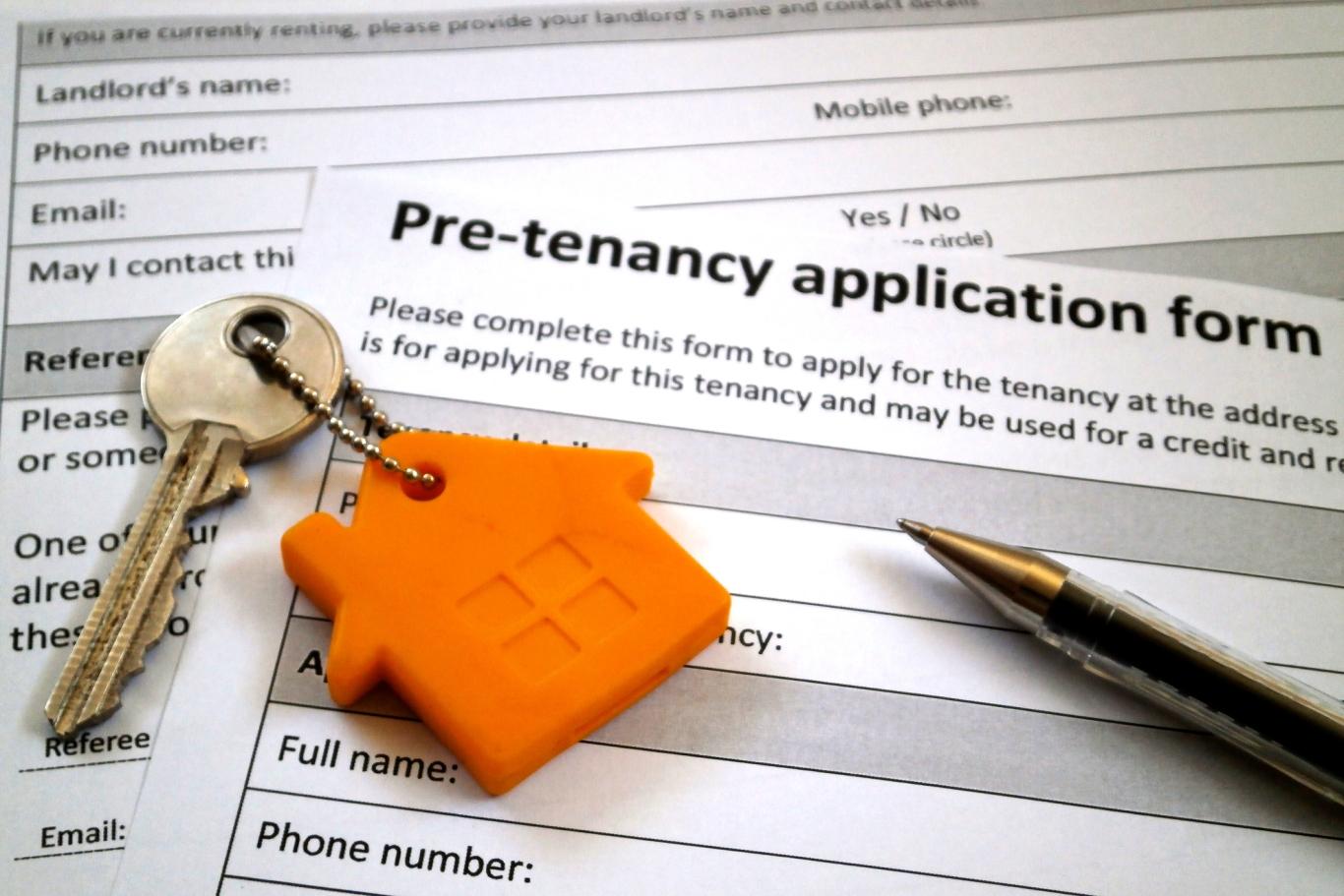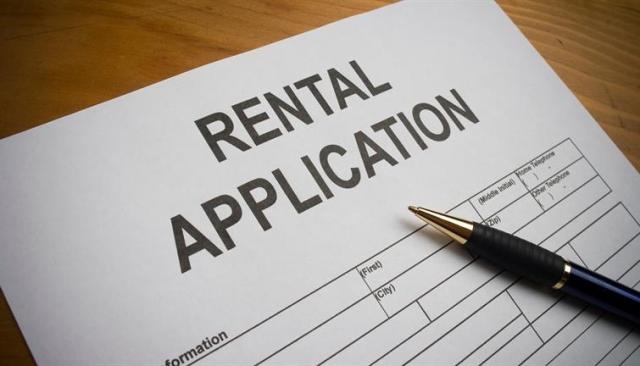Summary: An apartment background check usually only takes 48-72 hours, but those hours can be stressful as you wait to hear whether or not you've been approved. From what apartments look for in a background check to what to do after being denied, here's what to know about apartment background checks.
In this article:
- How long does a background check take?
- What do apartment communities look for in a background check?
- How far back to apartment background checks go?
- How much does a background check cost?
- Do all apartments do background checks?
- What is a red flag in a background check?
- What would make someone fail a background check?
- Background checks and your rights
You found a great apartment, but before you can move in, you’ll likely have to navigate the application process. This usually involves a background check — a tool landlords rely on to better understand potential tenants. Rental property is a major investment, so property owners want to choose their tenants carefully. However, you might find the whole process a bit intimidating. To make it less so, let’s review how long a background check might take, how far back it might go, what landlords are looking for, and what your rights are as a renter.
How long does a background check take?
The entire application process usually takes only a few days – anywhere from 48 to 72 hours. The background check is a very small part of the overall application process and should only take one to three hours to complete.

What do apartment communities look for in a background check?
A background check covers several different things. Here are a few items your landlord may look at:
Your rental history.
The background check will include a rental history report. This report lists all the addresses of your previous rentals, along with the contact information for your former landlords and property managers. If you don’t have a rental history, this won’t necessarily disqualify you from getting the apartment. In this case, the landlord may look at your references, proof of employment, and pay stubs. The landlord simply wants to make sure you will pay your rent on time. If you have an eviction in your past, or if you consistently paid your rent late, this could be a red flag for the landlord and it could lead to them rejecting your application.
Your employment history.
Landlords typically want your income to be three times the monthly rent. When they look into your employment history, they’ll want to verify your income, make sure you work where you said you work, and they’ll look at how long you’ve been at that job.
The landlord might contact your employer to verify your length of employment. Typically, they would like to see that you’ve worked in the same place for at least six months. But don’t worry if you just started a new job – you can get letters of recommendation to show the landlord, or you can ask your employer to write a letter or send an email explaining that you’re a new hire. Some apartment communities and landlords might even accept offer letters. The landlord mainly wants to make sure you’ll stay for the duration of your lease. Someone who changes jobs every couple of months might be less inclined to stay put in an apartment for an entire year. You can also consider offering to pay a higher security deposit, show your bank statement to prove you have enough in savings to cover the rent for several months, or ask someone to cosign for you if necessary.
Your credit history.
Most landlords and apartment communities are looking for a credit score of at least 650, but it isn’t always that simple. Even if your score is on the lower end, that doesn’t necessarily lead to an automatic rejection. The score is a factor, but landlords will probably look for patterns in your credit history, as well. For example, if you consistently paid your bills on time until an unexpected event like a job loss, the landlord should be able to tell this from your credit report and consider this information when deciding.
If you haven’t checked your credit score lately, it’s a good idea to get your credit report. You can see what your current score is and, if there are any errors on your report, you can get them fixed before a landlord runs a background check. If your credit is below 600 or you don’t have a credit history, the landlord might request a guarantor (someone who will cosign for you).
Your criminal history.
The criminal background check doesn’t just look at convictions. It also pulls non-convictions (cases that were dismissed or not prosecuted). Non-convictions might stay on your history report for seven years, while convictions stay on your history report permanently unless you are able to have your record expunged or sealed. If there’s something you are concerned about in your history, be up front with the landlord. This will give you a chance to explain the situation before the landlord finds it on your report.
How far back do apartment background checks go?
A credit check will generally go back seven to 10 years, according to TransUnion. Most negative information, such as defaulting on a loan or having a car repossessed, will stay on your credit report for seven years. A bankruptcy can stay on your credit report for up to 10 years.
It’s important to note that while landlords can use the information in your credit report to reject your application, their criteria for accepting or rejecting an applicant must be consistent. They cannot apply one set of standards to one person and a different set of standards to another. This would violate federal fair housing laws. Some states also have laws concerning background checks and applications, so be sure to investigate your state laws when applying.
How much does a background check cost?
When you apply for an apartment, you’ll likely pay an application fee. This fee covers the background check. A rental application fee typically runs about $30 to $50, but some landlords could charge more. Some states put a limit on the amount of the application fee, but not all. Check your local laws to see if there’s a cap on the amount landlords can charge in your area. You shouldn’t have to pay much more than the cost to conduct the credit report, so be wary of a landlord who charges an exceptionally high amount for an application fee.
If you are applying through Apartments.com, you’ll pay one small amount and you can apply to up to 10 participating apartment communities within 30 days. The apartments that participate in the program have a green “apply now” button on their listing.
Do all apartments do background checks?
Most apartment communities and independent landlords will do some type of background check. If you are applying to an apartment community owned by a large property management company, it may be more difficult to get them to consider you if your background check turns up some issues. If you are concerned about your credit history, a private landlord may be more willing to work with you since it is much more one-on-one.
Some things you can do to overcome a less-than-ideal background check includes getting references, being honest with the landlord, and offering a concession like paying a higher security deposit or signing a longer lease.

What is a red flag in a background check?
Some of the red flags landlords look for during a background check include things like a low credit score, misleading or inconsistent information, frequent moves, evictions, a criminal history, and a poor employment history. If you have something in your background that might be a red flag, be up front about it. Explain to the property manager what they might find and the circumstances around it. Being honest will go a long way to putting the property manager’s mind at ease, especially if the incident happened a long time ago.
It's possible for a red flag to appear on your background check by mistake. For example, if your name is similar to someone else’s, the files could get mixed up. This is rare, but it could happen. The information could also be outdated or incomplete. The property manager will let you know if a negative background check was the reason you were denied, and they’ll tell you how to dispute it if you need to. According to the Fair Credit Reporting Act, they are required by law to “notify the consumer when an adverse action is taken on the basis of such reports.” So, if the background check was the reason for denying you, they will inform you of this so you can follow up and hopefully get any wrong or outdated information fixed. They aren’t obligated to show you the actual report, but they will tell you where the report came from.
What would make someone fail a background check?
Any of the red flags mentioned above could cause you to fail your background check and may lead to a denial of your rental application. Things like a conviction of a violent crime, a history of evictions, or bad credit are obvious reasons for a rejection, but there are other reasons you might be denied. Frequent moves or a history of breaking your lease, trying to rent an apartment that’s more than 35 percent of your income, or lack of an employment history are some other reasons your rental application could be denied.
Background checks and your rights
If a landlord rejects your application, they must provide you with notice (written, oral, or electronic) explaining why they are denying your application. According to the Fair Credit Reporting Act, they are also required to give you the contact information for the company that provided the report. The notice should also explain how to correct inaccurate information and how to get a free copy of the report within 60 days of the landlord’s decision if you request one.
Consumer reporting agencies cannot report outdated negative information. Information is considered outdated if it is more than seven years old for negative information or for bankruptcies more than 10 years old.
It could be a violation of the Fair Housing Act for a landlord to have a blanket policy of refusing to rent to anyone with a criminal record. This would be considered arbitrary and overbroad. According to HUD, “Policies that exclude persons based on criminal history must be tailored to serve the housing provider’s substantial, legitimate, nondiscriminatory interest.” Landlords need to take into consideration factors such as the type of crime and the length of time since the conviction.
Even if a landlord has a tailored policy of only excluding applicants with certain types of convictions, they still must prove that the policy is necessary to serve a “substantial, legitimate, nondiscriminatory interest.” They should look at the type of crime, the severity, and the recency of the offense. If they determine that other tenants might be at risk based on these factors, they can deny your application.
If you believe your rights were violated, you can file a complaint with HUD.
While this article is in no way a substitute for legal advice (please contact a landlord-tenant attorney in your city if you need one), hopefully it gives you a better understanding of background checks, how they are used, and what your rights are as a renter. A background check is just a small portion of the application process, but it’s an important step toward getting your dream apartment.
This article was originally published on June 22, 2020 and has since been updated.
FAQs
What is included in an apartment background check?
Apartment background checks typically include a review of your credit history, rental history, criminal record, and sometimes employment verification. Landlords use this information to assess your reliability as a tenant.
How far back to apartment background checks go?
The time frame varies by state and landlord. Generally, criminal background checks may go back 7-10 years, while rental history and credit checks can cover a longer period.
Can I rent an apartment if I have a criminal record?
Yes, you can rent an apartment with a criminal record, but it depends on the landlord's policies, state and local laws, and the nature of the conviction. Talking to the landlord upfront and offering references can help improve your chances. Some landlords might require a higher security deposit or a co-signer.
How long does an apartment background check take?
Most background checks are completed within 24-72 hours. However, delays can occur if additional verification is needed.
What can disqualify me from passing a background check?
Some common reasons for being disqualified include a history of evictions, a poor credit score, recent or severe criminal offenses, and inconsistent or unverifiable employment history.
Can I check my own background before applying?
Yes. You can request a copy of your credit report and conduct a personal background check to ensure there are no surprises during the application process.






